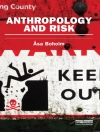It is known for milleniums, that water is forming the principle base for the total biosphere including human beings (‘Thales [of Milet] says that it [the nature of things] is water’ Aristoteles, Metaph. 983 b20), Nevertheless, basically the anthropogenic activities and human requirements, in particular our enormous consume of chemicals, are affecting worldwide the aquatic environment on a rapidly increasing level. Consequently, huge scientific efforts, worldwide, focussed intensively on increasing the knowlegde about the state of pollution and on the most important processes harming the aquatic systems. The overall aim is the rehabilitation and protection of this unique and essential compartment. Environmental studies on riverine and groundwater systems are base research activities at the Institute of Geology and Geochemistry of Petroleum and Coal, RWTH Aachen University. This book summarizes the analytical and organic-geochemical work performed between 1998 and 2003 at this institute. All the individual studies and the corresponding results were separately published in various scientific journals. However, I felt the substantial need to combine these individual parts in order to reveal a comprehensive overview on all the different and novel aspects concerning the organic contamination of rivers and groundwater.
Table des matières
Low molecular weight anthropogenic compounds in groundwater.- Occurrence of low molecular weight anthropogenic compounds in riverine water and corresponding sediments.- Fate and distribution of organic contaminants in riverine systems.- Particle associated output of organic contaminants from riverine systems.- Summary and conclusions.- References.












